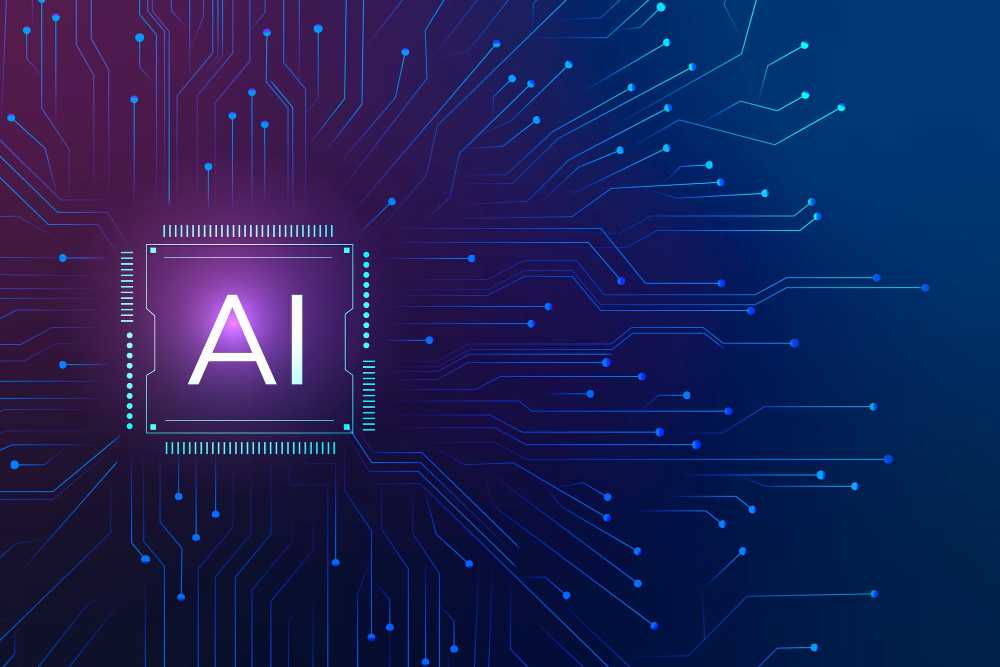As an organization, being innovative and agile in the modern business landscape is critical to surviving. But, instead of capitalizing on the opportunities that come with disruptive technologies, you’ll lose ground to competitors.
One such technology that you must pay attention to is artificial intelligence (AI). AI is already present in many everyday aspects of our lives, from digital assistants to voice-controlled smart homes.
Projections indicate that the global AI market is growing at a compound annual growth rate of 36.62%. As a result, it will be worth 190.61 billion dollars by 2025.
With AI technology advancing rapidly, it’s difficult for businesses to stay ahead of the curve. Without a digital transformation strategy, you risk falling behind competitors leveraging AI for solutions like cloud application development to gain an edge.
If you’re unsure how and where to start with AI, you’re in the right place. In this article, you’ll find ten key predictions for AI in 2023. By staying on top of the latest trends, you can ensure your business remains competitive in a rapidly changing market.
Key Stats You Should Know About AI
While many business leaders know that AI has revolutionary capabilities, only a few understand its magnitude and potential. So, as you learn about what to expect going forward from AI, you must understand what it means for your business.
Here are some key AI statistics you should know about:
- An astounding 77 percent of devices now incorporate AI technology
- Since the turn of the millennium, AI startup growth has skyrocketed fourteenfold.
- C-suite executives trust Artificial Intelligence to drive growth and understand the necessity of its integration. An astonishing 84% recognize that AI is a crucial factor in achieving their goals for advancement.
- AT 8.4 billion, AI assistants will outnumber people by 2024
- 41% of consumers believe AI will improve their lives
- AI is helping organizations increase profitability by as much as 20%
This data makes it easy to see why AI is rapidly gaining traction and how it can improve the customer experience. So, let’s look at the top 10 predictions for AI in 2023.
1. Increased Use in Cloud Computing
As companies look for efficient ways to scale, cloud computing is fast emerging as the go-to solution. And it’s no surprise that this is one of the areas where AI will significantly influence. As a result, AI cloud is being deployed for numerous purposes, including data storage and processing and digital application development.
AI on the cloud is a potent tool that automates mundane tasks, optimizes decision-making, and boosts efficiency. Its subset, Machine Learning, teaches computers to replicate human behaviors, such as language recognition or image processing through sophisticated algorithms. Depending on their purpose, these systems learn from massive data sets, which are processed via CPUs or GPUs.
AI clouds have become popular in various sectors, including speech recognition, self-driving cars, and medical diagnosis. This is because AI clouds offer increased security, scalability, and cost-reduction benefits. Therefore, it is no surprise that market analysts anticipate the AI cloud industry will experience a CAGR of 20.3% until 2027.
Cloud computing will be a significant factor in advancing Artificial Intelligence clouds. It is particularly effective for swiftly analyzing and managing large databases and storing them safely with no initial costs to businesses. As such, cloud computing has become an invaluable resource that can help any company maximize its potential while minimizing expenses.
So, for all your cloud application needs, ensure you look for a digital transformation services and solutions provider leveraging AI.
2. Driverless Cars Will Become the Day-to-Day Mode of Transport for Some
The autonomous car industry is growing exponentially. It’s expected that the global autonomous vehicle market will be worth $325.9 billion by 2030.
Driverless vehicles are being rapidly developed with AI technology at the core. As a result, not only can they recognize and interpret their surroundings, but they also make decisions independently of human input.
As a result, driverless cars are already being tested on roads in multiple countries worldwide with promising results. By 2023, self-driving vehicles could be some people’s primary mode of transport.
Some of the best examples of this are Cruise and Robotaxi. Cruise is an app like Uber, but instead of having a human driver, it is operated by AI technology. Similarly, Robotaxi is an online platform allowing users to book self-driving car rides.
3. Increased Use to Minimize Uncertainty
AI has already proven invaluable when dealing with uncertainty and future predictions. For example, AI technologies can be used to predict customer behavior, mitigate potential risks, and anticipate changes in the market.
Several industries have already adopted AI-powered predictive analytics, from finance to retail. It helps businesses make better decisions and accelerate growth.
By 2023, AI-driven predictive analytics are expected to become even more advanced, enabling companies to minimize uncertainty and anticipate risks. With AI’s help, organizations will be able to gain a better understanding of their customer base, market trends, and competitors.
4. Conversational Search Will Begin Gaining Prominence
Gone are the days when you had to key in your search query manually. Today, AI-powered conversational search has become a reality. This means that users can now engage with their devices in natural language and get accurate results much faster.
Conversational search is powered by Natural Language Processing (NLP), a branch of AI. It allows machines to understand natural languages, such as spoken words or typed queries, and respond accordingly.
Several industries, such as healthcare and banking, have already adopted the technology. As the technology advances further, conversational search will become more prominent in 2023.
However, as conversational search technology progresses, one major issue must be addressed before it becomes commonplace: accuracy. Unfortunately, current language models for conversational search are often inaccurate. They sometimes provide incorrect information with total confidence.
5. AI Weaponization
Undoubtedly, AI has numerous beneficial applications. However, as with all powerful technologies, it can also be used for harmful or questionable reasons. In this regard, a key concern is how manufacturers and nations leverage AI tools’ commoditization to develop or enhance weapons systems.
The same algorithms powering business processes now help enhance leading-edge destroyers. Some weapons that can use AI include missiles, robots, war-class land, battle drones, naval and aerial vehicles, and surveillance systems.
Nations have stockpiled millions of autonomous weapons systems, waiting to launch them in the perfect situation. Much like malicious software and their AI-controlled cyber counterparts, they are ready to target humans without requiring further input.
While countries and militaries aim to outwit one another, especially those viewed as present or future adversaries, private businesses are pulled onto the battlefield. Google is a prime example. When it secured the contract to use its AI power for Pentagon’s initiatives, it polarized public opinion and its employees.
At a higher level, AI weaponization is one of the most pressing issues facing AI in 2023 and beyond. Fortunately, the public outcry against it could lead to tighter regulations or even an outright ban on its use in certain areas.
6. Market Dominance by Early Adopters
AI is still a relatively new technology, but some early adopters are already dominating the market. Companies that have invested in AI-powered applications and have the infrastructure to support them are well ahead of their competitors.
These companies are leveraging the power of AI to gain a competitive edge, optimize operations, and increase efficiency. Moreover, they have access to vast amounts of data that allows them to generate valuable insights.
As this trend continues in 2023, the gap between early adopters and laggards will widen. As a result, companies with no AI-driven digital strategy or cloud application development capability may find it difficult to remain competitive.
7. Rapid Increase in AI-Generated Content
Content generation is one of the most popular applications of AI today. Natural language processing algorithms allow machines to generate content on a vast scale. As a result, this technology is being used in many industries, such as news media, advertising, and entertainment.
In 2023, AI-generated content will become even more ubiquitous. Companies are already using AI to produce content faster and cheaper than human writers can. In addition, it can personalize content for specific audiences.
AI-generated content can also help create virtual assistants and chatbots to provide personalized customer service experiences. This technology is expected to revolutionize the customer service industry in 2023.
8. AI-Powered Cyber Security
Cybersecurity is becoming increasingly critical as more people, businesses, and nations rely on cloud computing. You can use AI to detect and respond to threats faster than ever before.
AI-powered security systems can learn from past incidents to identify new threats more easily. They can also scan the web in real-time for any suspicious activity and take action accordingly.
In 2023, AI-powered security solutions will become even more capable and efficient. They will be able to detect malicious actors from different sources and take preventive action before they can cause any damage.
However, on the flip side, cybercriminals will also take advantage of AI to launch more sophisticated attacks. This underscores the need for governments, businesses, and individuals to remain vigilant.
9. Increased Personalization
One of the key features of modern markets is that they’re consumer-driven. As a result, businesses must go the extra mile to attend to unique individual needs and preferences to attract and retain clients.
AI is playing a key role in meeting this demand. By leveraging AI technologies such as machine learning, you can quickly and accurately measure customer preferences and tailor their offerings accordingly.
The use of AI for improved personalization is expected to increase. Therefore, businesses will have to get better at using AI-driven digital transformation strategies to stay competitive.
10. Efforts to Develop Humanoid Robots Will Accelerate
The idea of humanoid robots has been around for decades, but it is only now that the technology behind them is starting to catch up with the imagination.
These robots are expected to become more capable and efficient and will be able to respond to a range of commands. They can also provide companionship and help with tasks such as housekeeping.
In the near future, humanoid robots will become increasingly commonplace. As a result, developers are already working on solutions that allow humans to interact with these robots naturally. A notable example of this is Tesla’s Optimus Robot.
In 2023, more strides will be made in developing humanoid robots and their use in the healthcare, hospitality, transportation, and manufacturing industries. So, you can expect humanoid robots to play an essential role in the future of work.
Get the Right Digital Transformation Partner
With the knowledge of what AI offers early adopters, you want to accelerate your adoption. However, you need to do it correctly to get meaningful results. All this starts with developing a robust digital transformation strategy and getting the right partner.
To get the right partner, consider the following:
- Your needs- Before you search for a digital transformation services and solutions provider, you need a clear idea of your needs.
- The provider’s capabilities- Once you understand what you need, finding a cloud application development or digital transformation services provider that aligns with what you are looking for should be easier.
- Flexibility and scalability – Make sure the digital transformation solutions the provider proposes can scale with your business as you grow.
- Experience- Finally, you want to ensure the cloud application development provider has a proven track record in helping other businesses succeed with digital transformation.




